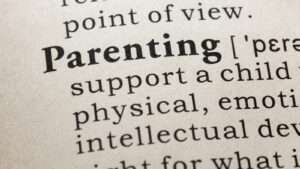In the vast journey of parenting, there’s no such thing as a perfect roadmap. But wouldn’t it be great if there were some tools to make the ride a bit smoother? That’s where parenting skills worksheets come into play. They’re more than just pieces of paper; they’re valuable tools that can help parents navigate the complex world of raising children.
These worksheets offer practical insights, tips, and strategies, all designed to enhance parenting skills. Whether you’re a new parent feeling a bit overwhelmed or an experienced one looking for fresh ideas, these worksheets can be a game-changer. So, let’s delve into the world of parenting skills worksheets and discover how they can make your parenting journey a rewarding experience.
Parenting Skills Worksheets
Navigating parenthood successfully entails understanding parenting skills worksheets. Valuable for both novice and seasoned parents, these tools offer practical insight.
Parenting skills worksheets serve an essential purpose: enhancing parental brainwork. These worksheets equip parents with effective strategies, helping them address common parenting challenges. For instance, stress management worksheets offer tactics to cope with parental pressure while child development worksheets help parents fuel their kid’s growth and potential.
How to Use Parenting Skills Worksheets
Utilizing Parenting Skills Worksheets isn’t complicated. After the acquisition, a parent reads through the material, absorbing the provided lessons. Following each theme, it’s suggested to apply the strategies in real-life parenting situations. For example, after studying a conflict management worksheet, it’s prudent to apply the newly learned tactics when resolving disagreements between children. These sheets provide not only theoretical but applicable solutions to real-life parenting problems.
Key Components of Effective Parenting Skills Worksheets
Parenting skills worksheets prove their worth through concrete features that empower parents. They contain rich, crucial components that many parents find essential.
High content quality sets effective parenting skills worksheets apart. It’s not mere text on a piece of paper that counts, it’s the content’s potential to resonate with parents and offer solutions to parenting trials. These worksheets often include real-life scenarios, practical strategies, insightful tips and techniques, that can guide parents towards improved interactions with their kids. For instance, a worksheet might detail a strategy for managing temper tantrums, complete with step-by-step instructions and potential reactions or consequences.
The Role of Learning Objectives
Learning objectives wield immense influence in parenting skills worksheets. They shape the direction the material takes and set clear, specific goals for parents to achieve. For example, a worksheet with the objective of “Improving Communication with Teenagers” would contain strategies, tips, and exercises related to that particular objective. These objectives give parents a target to aim for, thereby making the learning process organized, focused, and results-driven.
Therapeutic Value of Parenting Skills Worksheets
Parenting skills worksheets emerge as a therapeutic tool, empowering parents with strategies and insights that lead to healthier, happier families. Harnessing the value of such worksheets can create a positive influence in areas like inculcating positive parenting strategies and improving parent-child interactions.
These worksheets essentially act as guides, fostering the implementation of positive parenting strategies. For instance, an emphasis is often placed on the pillars of patience, consistency and communication. It’s also common to find teachings around empathy, respect, and setting boundaries, all aimed at helping parents build a nurturing environment.
A worksheet might contain situations, where a child refuses to do his or her chores. In this example, parents receive guidance on dealing with this situation using positive reinforcement methods rather than resorting to criticism or punishment. Such tactics, when incorporated, invoke a positive feedback loop that enhances both the child’s behavior and the parent’s confidence.




